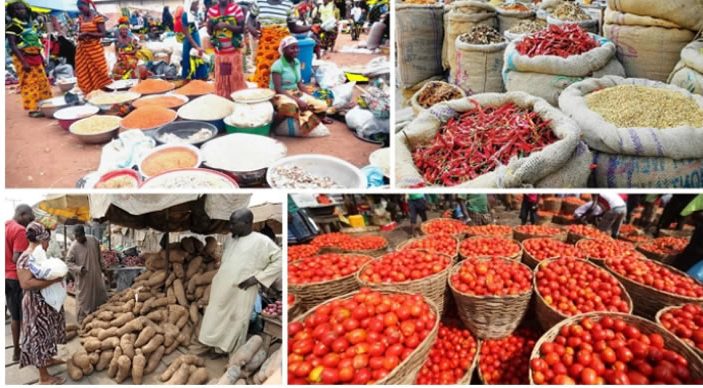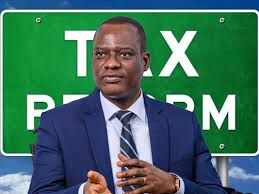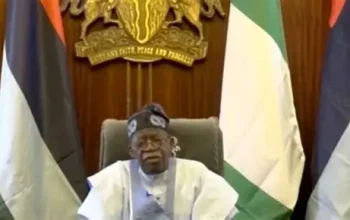As Nigerian workers await the implementation of a new minimum wage promised by President Bola Tinubu in his recent Democracy Day address, concerns over inflation control and economic stability loom large. Here, we delve into Nigeria’s economic journey and the critical policies needed to address these challenges, while ensuring fair wage distribution and boosting production.

President Bola Tinubu announced his intention to send an executive bill to the National Assembly soon, establishing a new national minimum wage for Nigerian workers. This follows the submission of a draft proposal to him by the Tripartite Committee, which was set up by the Federal Government to determine the wage for the next five years.
Read also: Labour vows to reject ₦100,000 minimum wage, may resume strike Tuesday
Negotiating the new minimum wage was a daunting task for the committee, with Organised Labour advocating for a substantial increase while the Organised Private Sector and Nigeria Governors’ Forum expressed concerns over sustainability. Eventually, a consensus was reached with Organised Labour reducing their demand from N494,000 to N250,000.
Minimum wages are globally recognized standards aimed at ensuring fair compensation for work performed. The International Labour Organisation’s Minimum Wage Fixing Convention emphasizes consultation with social partners, a principle enshrined in Nigeria’s 1999 Constitution, where fixing the national minimum wage is a matter for the National Assembly.
Throughout Nigeria’s democratic history, successive administrations have adjusted minimum wages, underscoring its importance in maintaining economic fairness. From its inception in 1981 under President Shehu Shagari, to the latest increase in 2019 by President Muhammadu Buhari, these adjustments have reflected evolving economic conditions and social needs.
President Tinubu’s recent initiative, represented by Vice President Kashim Shettima in January 2024, established a new tripartite committee to recommend an updated minimum wage. This move responds to concerns that the current wage of ₦30,000, set in 2019, no longer adequately supports Nigerian workers.
Organised Labour proposed varied regional figures, highlighting diverse economic realities across Nigeria. However, practicality and economic feasibility remained crucial considerations, particularly amidst Nigeria’s economic challenges and fluctuating growth rates.
Recent economic data reveals a tumultuous period marked by significant inflationary pressures, exacerbated by policy shifts such as the removal of fuel subsidies and a managed exchange rate. These measures, while aimed at stabilizing the economy, inadvertently heightened the cost of living, contributing to a surge in headline inflation and diminishing purchasing power.
State governments, facing constrained fiscal spaces, have struggled with increased personnel costs amidst fluctuating revenues. Despite efforts to align expenditures with economic realities, the implementation of higher minimum wages poses significant financial challenges, potentially impacting job stability and economic sustainability.
Former Governor of the Central Bank of Nigeria, Chukwuma Soludo, cautioned against unsustainable wage increases, stressing the need for alignment with economic capacities at both federal and state levels. His sentiments were echoed by Zamfara State Governor, Dauda Lawal, who highlighted ongoing challenges in implementing even the current minimum wage in some states due to financial constraints.
Looking ahead, the debate over Nigeria’s minimum wage underscores broader economic imperatives and social equity considerations. Balancing the needs of workers with the fiscal realities of governments remains a critical challenge, requiring careful policy deliberations and stakeholder consultations to ensure sustainable economic growth and equitable development.
In conclusion, while the proposal for a higher minimum wage reflects aspirations for improved living standards, its implementation must navigate complex economic landscapes to avoid unintended consequences on national economic stability and wellbeing.
Read also:
- Wumi Toriola blasts Jigan Babaoja for calling her out over recent video
- Ramota explains why she can never call any celeb ‘Aunty’ no matter their age
- Portable claims Saida Boj comes from broke family, dares her to post her father
- Saida Boj reacts to Portable’s diss track, drags his wives and babymamas
- Biden’s son convicted on all charges in gun case
- Wreckage of missing Malawi VP’s plane found with no survivor - Military
- Ayra Starr makes history as first Nigerian female artist on Billboard 200
- Singer Davido and Chioma Set To Tie The Knot Traditionally In Lagos On June 25, 2024
- Tega Dominic reacts to reports of man who dumped his girlfriend over N100K skincare request
- Sarah Martins defends lady who got dumped by boyfriend over N100K skincare request
- Rangers fined N5m after matchday mayhem vs Enyimba
- NPFL slams Enyimba N10m fine after match abandonment
- Oluwadolarz’s mom cries over tomatoes and fresh pepper she bought for N10k at a Lagos market
- Burna Boy Has Done More for Nigeria Than Our Ambassadors – Alibaba
- Russia sending Nigerians, other African students to war for visa renewal – Report
- Boniface Benched as Moffi and Lookman Lead Super Eagles Against Benin
- RCCG City of David undergoing audit as Iluyomade’s replacement resumes
- Labour vows to reject ₦100,000 minimum wage, may resume strike Tuesday
- FG Repairs Vandalised Second Niger Bridge, Enhances Security



